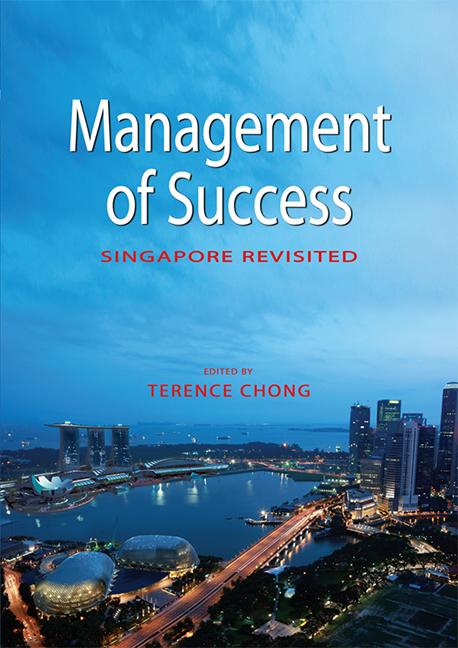Book contents
- Frontmatter
- Contents
- List of Tables and Figures
- Foreword
- Message
- Quote
- Preface
- The Contributors
- 1 Introduction: The Role of Success in Singapore's National Identity
- SECTION 1 SINGAPORE IN THE BIGGER PICTURE
- SECTION 2 LEADERSHIP, POLICY AND POLITICS
- SECTION 3 THE RESTRUCTURING OF THE ECONOMY
- SECTION 4 THE TRANSFORMATION OF SOCIETY
- SECTION 5 THE LAW
- SECTION 6 MODIFICATION OF THE ENVIRONMENT
- SECTION 7 COMMUNITY AND NATIONAL SECURITY
- SECTION 8 LIFE IN SINGAPORE
- Index
Preface
Published online by Cambridge University Press: 21 October 2015
- Frontmatter
- Contents
- List of Tables and Figures
- Foreword
- Message
- Quote
- Preface
- The Contributors
- 1 Introduction: The Role of Success in Singapore's National Identity
- SECTION 1 SINGAPORE IN THE BIGGER PICTURE
- SECTION 2 LEADERSHIP, POLICY AND POLITICS
- SECTION 3 THE RESTRUCTURING OF THE ECONOMY
- SECTION 4 THE TRANSFORMATION OF SOCIETY
- SECTION 5 THE LAW
- SECTION 6 MODIFICATION OF THE ENVIRONMENT
- SECTION 7 COMMUNITY AND NATIONAL SECURITY
- SECTION 8 LIFE IN SINGAPORE
- Index
Summary
In 1989, the Institute of Southeast Asian Studies (ISEAS) published the milestone volume Management of Success: The Moulding of Modern Singapore, edited by Kernial Singh Sandhu and Paul Wheatley. The 1989 volume was, and remains, the single most comprehensive collection of essays by scholars and professionals on Singapore. These essays delved into a wide variety of issues that were integral to the growth of modern Singapore, including political leadership, economic restructuring, societal transformation, foreign relations and national identity.
Profound global shifts have taken place in the twenty years since publication. The ending of the Cold War, the economic and political rise of China and India, September 11, the war in Iraq and the global financial crisis have irrevocably changed the world that Singapore faced in 1989. Meanwhile, within Singapore, the city-state has seen two prime ministerial transitions and the installation of third generation leaders who have articulated their vision for the twentyfirst century. How has the local political, economic and social landscape changed? Is and should success still be “managed” in Singapore? What are the consequences of our success? These questions offer an invaluable opportunity to review and critique major policy decisions that have shaped modern Singapore.
Given that the challenges Singaporeans faced and, indeed, our very notions of “success” were very different twenty years ago, this volume seeks to achieve two primary objectives: first, to reassess key public policies that have shaped Singapore since 1989; and second, to offer a critical update on the crucial issues that have dominated public discourse in Singapore. In this sense, the raison d’être of the new volume is not much different from the task that Sandhu and Wheatley set for the old volume, that is, “to elicit the relative degrees and quality of success attained in different sectors of the societal community”.
Nevertheless, this new volume distinguishes itself by capturing the Zeitgeist of contemporary Singapore. A quick glance through the index pages of the old volume will reveal many glaring absences of words that are today an integral part of our lexicon. Terms like “civil society”, “sexuality”, “civil disobedience”, “gay community”, “penal code”, “human rights”, “foreign talent”, “internet”, “gender”, “social compact” and so on, all of which did not appear in the 1989 volume, can no longer be excluded from any discussion on Singapore.
- Type
- Chapter
- Information
- Management of SuccessSingapore Revisited, pp. xvii - xxPublisher: ISEAS–Yusof Ishak InstitutePrint publication year: 2010



